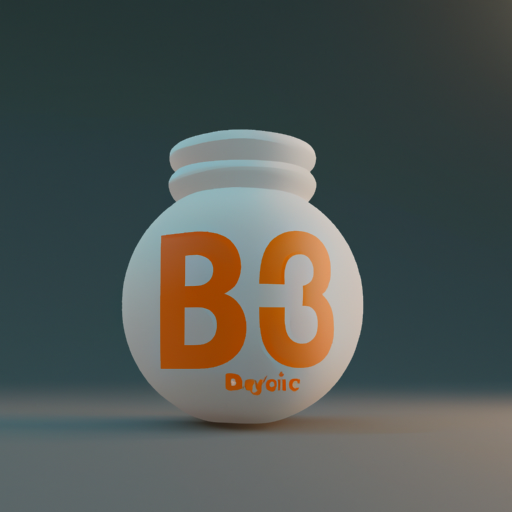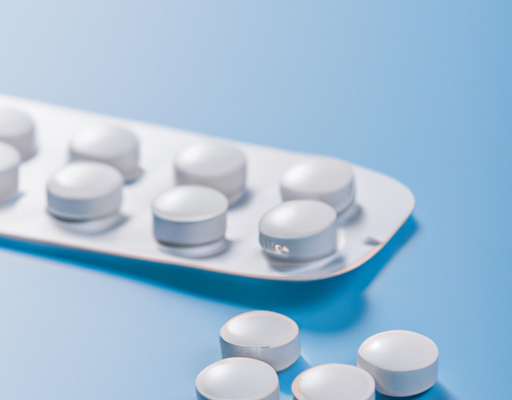Definition of niacin
Niacin, also known as vitamin B3 and nicotinic acid, is an essential nutrient for human health. It is involved in multiple biochemical processes and is a major component of the human body’s energy metabolism. Niacin is found in both animal and plant sources, and can be either consumed directly or synthesized in the body from the amino acid tryptophan. It is important to maintain adequate levels of niacin in the diet, as deficiency can lead to serious health concerns, including pellagra. Symptoms of niacin deficiency include skin irritation, weakness and general malaise. To reduce the risk of deficiency, individuals should consume a variety of foods that contain niacin, including lean meats, fish, nuts, legumes, eggs, whole grains and fortified breakfast cereals.
Food sources of niacin
Niacin, or vitamin B3, is an important nutrient that plays a role in metabolism and immune system health. Although niacin can be taken as a supplement, it can also be found in food sources. While some foods are naturally high in niacin, some are fortified with the vitamin. Some of the best sources of niacin include animal products such as fish, poultry, and red meat, as well as certain whole grains such as brown rice and oats. Nuts and legumes such as peanuts and peas are also good sources of niacin. Additionally, some vegetables such as mushrooms and broccoli are high in niacin. As niacin is water-soluble, it is important to consume a variety of these foods on a regular basis to ensure adequate intake of this essential vitamin.
Recommended daily intake of niacin
Niacin, a water-soluble B-vitamin, is essential for general health and well-being. According to the National Institutes of Health (NIH), consuming enough niacin is important for energy production and digestion, as well as for proper functioning of the nervous and digestive systems. As such, adequate amounts of niacin need to be provided either through dietary intake or through supplementation.The recommended daily intake (RDI) of niacin varies with age and sex. Adults should consume 14-16 mg of niacin per day, while the elderly, pregnant women, and breastfeeding mothers need higher amounts. The general RDI of niacin is:
- Women of all ages: 14 mg/day
- Men age 19-50: 16 mg/day
- Men over 50: 17 mg/day
- Pregnant women: 18 mg/day
- Breastfeeding mothers: 17 mg/day
Take note that niacin supplements should always be taken only under the guidance of a qualified healthcare provider, as there is a risk of side effects and overdose.
Dietary advice for obtaining adequate niacin
A healthy diet is one of the best ways to ensure adequate niacin intake. Nutrient-dense foods, such as lean meats, dairy products, beans, nuts, and whole grains, are all excellent sources of niacin. To ensure that you get the recommended daily allowance of niacin, aim to include one or more of these foods in every meal. Additionally, vitamin B3 supplements can also provide a reliable source of niacin for those who have difficulty meeting their dietary needs. For those with certain medical conditions that interfere with absorption or metabolism of niacin, an individualized diet and/or medication regimen should be discussed with a healthcare provider.
Potential roles of niacin in health
Niacin, or Vitamin B3, plays an important role in maintaining good health. As well as being found in foods such as dairy, eggs, proteins, and grains, niacin can also be taken in supplement form. It is widely believed that niacin has a number of potential health benefits. For example, niacin has been credited with helping to reduce cholesterol levels and improve circulation. It may also help to protect the body against oxidative stress, a process that can lead to serious diseases such as cancer. In addition to this, niacin may help to reduce the risk of stroke and heart attack, as well as improve joint health and prevent age-related eye disease. Niacin also appears to have protective effects against Alzheimer’s disease and may even help to improve brain function. Ultimately, taking niacin, either through dietary sources or through supplementation, can have a positive effect on overall health and wellbeing.
Risks associated with excessive intake
Niacin, or Vitamin B3, is an important nutrient found in many foods, but is also available as a supplement. Although Vitamin B3 plays important roles in helping the body with energy metabolism and certain autonomic functions, care must be taken when consuming large doses. Excessive intake of niacin in the form of a medicine can cause unpleasant and sometimes serious side effects. Here are some potential risks associated with excessive niacin consumption:
- Itchiness and rashes due to itchy skin reactions
- Liver damage from long-term use or from taking too high a dosage
- Nausea, vomiting and diarrhea
- Low blood pressure from taking too much of the medicine in one dose
- High blood sugar levels from taking too large a dose on a long-term basis
It is important to discuss any dietary supplement use with a health care professional to ensure the right dose is taken and that it does not interact with any other medicines or health conditions.





No Comments